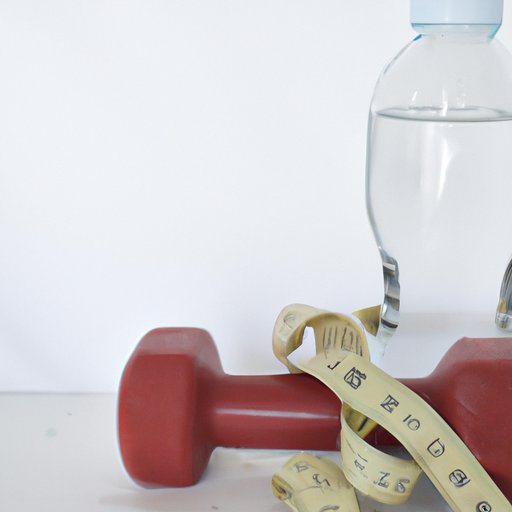
Introduction
Water weight is a reality that most of us experience at some point in our lives. It’s the excess water retained in our bodies that can cause bloating, weight gain, and even affect our performance during vigorous exercises. Understanding how much water weight weighs and the triggers for it is therefore important to manage our overall health and wellness. In this article, we will explore the concept of water weight, its importance in human health, and various strategies to manage it.
Explanation of Water Weight
Water weight is the amount of water retained by the body tissues and cells, including blood, muscles, and liver. It is important to note here that the weight of water can impact the number on the scale. For example, one liter of water weighs approximately 2.2 pounds (1 kilogram). Additionally, the weight of water can also vary depending on factors like menstrual cycle, sodium intake, and level of physical activity.
Importance of Water Weight in Weight Management
Water weight plays a significant role in weight management. During times of high sodium consumption, the body responds by retaining water, which can lead to noticeable weight gain. Understanding the role of water weight can help individuals create an effective weight loss strategy. Knowing how much of their weight is due to water can help with goal setting and also encourage them to make lifestyle changes that target water weight loss.
Measuring Water Weight at Home
Monitoring water weight at home is an easy way to stay on top of changes in the body. Simple tools like a weight scale can reveal if a sudden increase in weight is due to water retention. Measuring tape is another useful tool as it can track changes in the body’s circumference. By noting these changes over time, individuals can assess the impact of certain foods or activities on their water weight. It is essential to measure water weight consistently to identify triggers affecting body composition. Tracking can be done once a week or as frequently as daily to achieve the best results.
The Connection Between Water Weight and Exercise
Exercise is an essential component of overall health. It can also help manage water weight. Physical activity allows the body to sweat, thereby releasing the excess water stored in tissues. However, it is important to hydrate before, during, and after workouts to prevent dehydration. Rather than aggressive and strenuous methods that can lead to injury or dehydration, individuals should aim for moderate-intensity exercises that will raise their heart rate gradually or any exercises that can be built into a daily routine, including swimming, cycling, or going for a walk.
Foods That Help Shed Water Weight
Several whole foods are known to be diuretic and can help reduce water weight. These include foods like cucumbers, watermelon, pineapple, celery, and asparagus. Additionally, drinking enough water can help flush out excess sodium and decrease water retention in the body. Individuals should also aim to include protein in their diet, which aids in muscle growth and repair and can regulate the body’s fluid balance. Aiming for a balanced and natural diet, cutting sodium intake, and drinking plenty of water will lead to positive outcomes in water weight management.
How to Reduce Water Weight Quickly
While it’s important to approach water weight management as a long-term goal, there are natural remedies that can be utilized to reduce water weight quickly. For instance, consuming natural diuretics such as dandelion tea, green tea, or coffee can help flush out sodium from the body. Intense exercise like jogging and cycling can also help to reduce water weight in the short term. These are temporary solutions, and safety measures should be taken to ensure the effective loss of water weight without leaving the body dehydrated.
Conclusion
Water weight can be an indicator of overall health and can also have a significant impact on weight management. In conclusion, managing water weight requires patience, dedication, and a willingness to make long-term lifestyle changes. Incorporating the strategies outlined in this article can lead to a reduction in water weight, reduced bloating, and a healthier, happier lifestyle.





